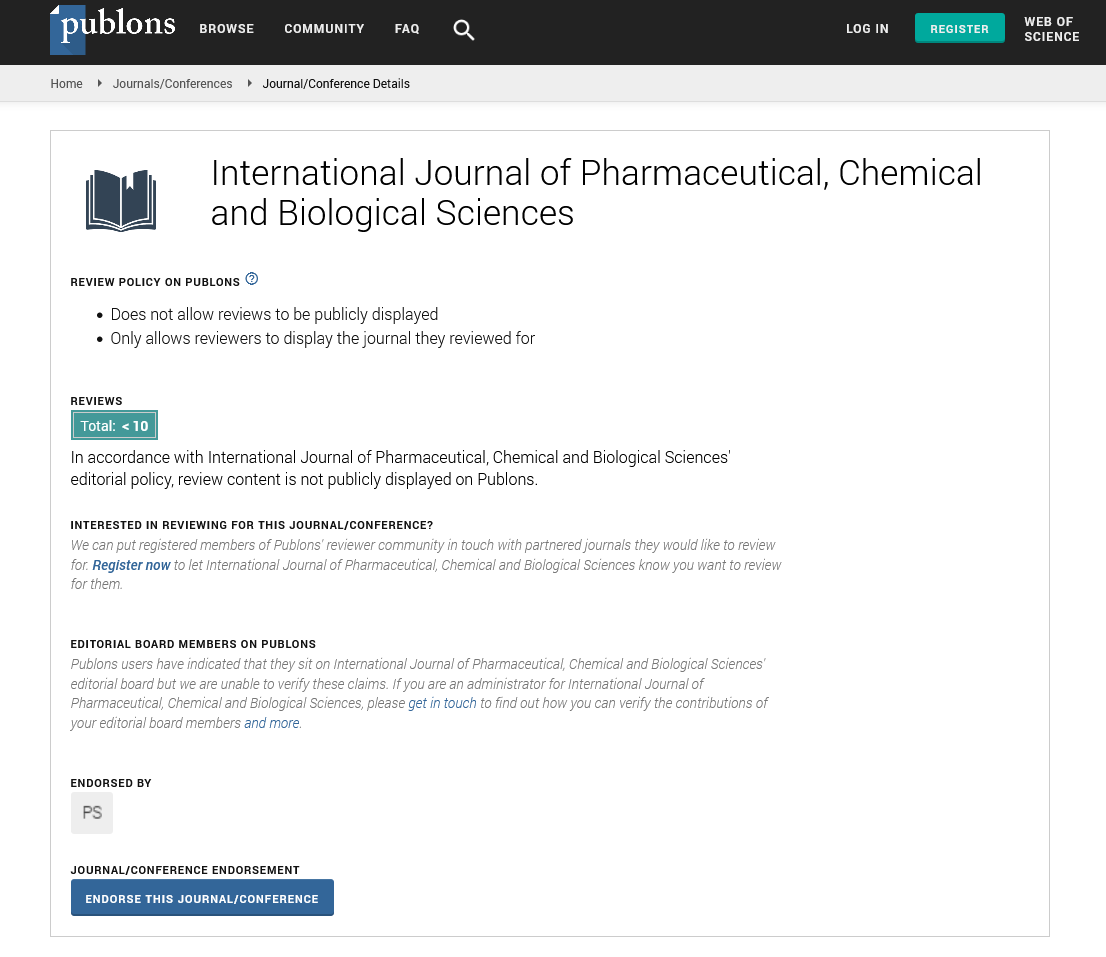Abstract
Author(s): M.Hajoori*, M. Naik, K.Naik and N.Butani
Much work had been carried out on Eugenia jambolanathat determine its pharmacological importance. The present study was devised to investigate the antimicrobial activity of Eugenia jambolana seeds, that was not utilizing by population as food and thrown as waste. The aqueous, ethanolic, methanolic, acetic acid and petroleum ether extracts of the Eugenia jambolanaseeds were evaluated for its antibacterial activity against four gram positive, (Staphylococcus aureus, Bacillus subtilis, Bacillus cereus andBacillus megaterium) and six gram negative (Escherichia coli, Salmonella typhi, Salmonella paratyphi A, Salmonella paratyphi B, Pseudomonas aeruginosa andProteus vulgaris)pathogenic strains. The preliminary investigation of different solvent extracts shows aqueous and ethanolic extract had significant antimicrobial activity against tested microorganism as compared to acetic acid and petroleum ether extract. Methanolic extract show no antimicrobial activity. The Eugenia jambolanaseeds show antimicrobial activity against Salmonella paratyphi A, Proteus vulgaris, Bacillus cereus, Bacillusmegaterium, Bacillus subtilis, Salmonella typhi and Pseudomonas aeruginosa. However, effectiveness will varies depending upon the nature of solvent used for extraction, type of microorganisms against which it was tested and the dose of extract being administrated.Effective antimicrobial activity was demonstrated at 10mg/ml against tested microorganisms. The phytochemical analysis shows presence of flavanoids, cardiac glycosides, steroids and tannin that might be contributing for antimicrobial activity of the plant material. Hence, the seeds of Eugenia jambolanacan be used as potential sources of antimicrobial agents

